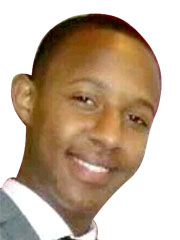THIS WEEK Rwandans are celebrating the twentieth anniversary since the Rwanda Patriotic Front stopped the Genocide against the Tutsi. As we celebrate the achievements that Rwanda has posted over the years, however, we need to pause and truly consider whether we have held the wellbeing of our armed forces past and present as a priority.


THIS WEEK Rwandans are celebrating the twentieth anniversary since the Rwanda Patriotic Front stopped the Genocide against the Tutsi.
As we celebrate the achievements that Rwanda has posted over the years, however, we need to pause and truly consider whether we have held the wellbeing of our armed forces past and present as a priority.
I am not oblivious to the efforts of many including the government through various channels such as the Rwanda Demobilisation and Reintegration Commission / Programme, to support the transition to civilian life of military personnel.
As a matter of fact, I commend the work done thus far, and also have every confidence that more will be achieved. That said, the aim of this piece is to sensitise public discourse on how best we can collectively improve the wellbeing of our armed forces.
To understand what it really means to be a member of the armed forces, I will draw from the writings of Dr Patrick Mileham, a British military expert on military ethics and military professionalism.
In 2000, Dr Mileham used the term ‘unlimited liability’ an analogical phrase coined by General Sir John Hackett in 1983 to describe the nature of military risk whereby soldiers accept a commitment to serve whenever and wherever they are needed, whatever the difficulties or dangers may be.
He also noted that such commitment imposes certain limitations on individual freedom, and requires a degree of self sacrifice. In return for their sacrifice, armed forces rightly expect society to respect and treat them fairly.
And so, inevitably, the question is; as Rwandans, have we treated our armed forces, past and present, with the utmost respect and fairness they deserve? Also, what can we do to improve their lives, I hear you ask?
By now, it should be common knowledge that one of the main duties of the Rwanda Defence Forces (RDF) is to devise all means, on behalf of the Government, to protect the safety and security of Rwandans, and to guard the country’s sovereignty.
In doing so, members of the armed forces cede some civilian freedoms, face danger and, sometimes, suffer serious injuries or death as a result of their duty. The rest of us are under no obligation to partake in such dangerous activities.
Henceforth, as Rwandans, we ought to consider drawing up a ‘Psychological Covenant’ between us the people, the Government and the Armed Forces.
A psychological covenant should be an expression of the moral obligation the Government and the people owe to those who serve or have served in the RDF and their families.
Brooke-Holland and Taylor, both experts on military professionalism observe that there are two main principles in the covenant; no disadvantage, and special consideration.
The Principle of No disadvantage:
The first principle of the covenant should stipulate that those who serve in the RDF, whether regular or reserve, those who have served in the past, and their immediate families, should face no disadvantage compared to other citizens in the provision of public and commercial services.
Here, we would need to make certain that as we pursue development goals in various areas such as education, healthcare, housing and so on, members of the RDF and their families are not left behind or at best are made first priority.
In addition, more welfare options including affordable loans, mortgages and healthcare plans could be made widely accessible to the RDF fraternity as they are to the rest of the general public.
In the same way, Parliament may take the lead to monitor the progress of such initiatives to make sure that accountability is upheld and that no member of RDF or their families are at a disadvantage in society.
The Principle of Special Consideration:
The second principle should reinforce the notion of special consideration in some cases involving members of the RDF and their families, especially for those who have given most, including the injured and the bereaved.
On housing, for example, members of the RDF such as those injured in battle may need special consideration for tailored housing to allow for changes in their lives as a result of injuries.
Also, special consideration could be offered to RDF members who have been honourably demobilised for one reason or another, by fully reintegrating and accepting them as equal members of our society.
Believe it or not, many have regularly argued that adjusting from military to civilian life can be a tall order. It is therefore our duty to effectively facilitate the transition.
Overall, every now and then, RDF soldiers will be called upon to make personal sacrifices, both at home and abroad, in the name of peace. On any occasion, they forego the rights enjoyed by most of us, and sometimes, they will pay the ultimate sacrifice, like it was the case during the liberation struggle.
Surely, in return, Rwanda Defence Forces must be able always to expect fair treatment, to be valued and respected accordingly. Collectively, let us always find ways to show appreciation and gratitude to our service men and women past and present.
The writer is a UK Parliamentary Intern and holds a Master of Science in Public Services Policy.
Twitter: @Jsabex


